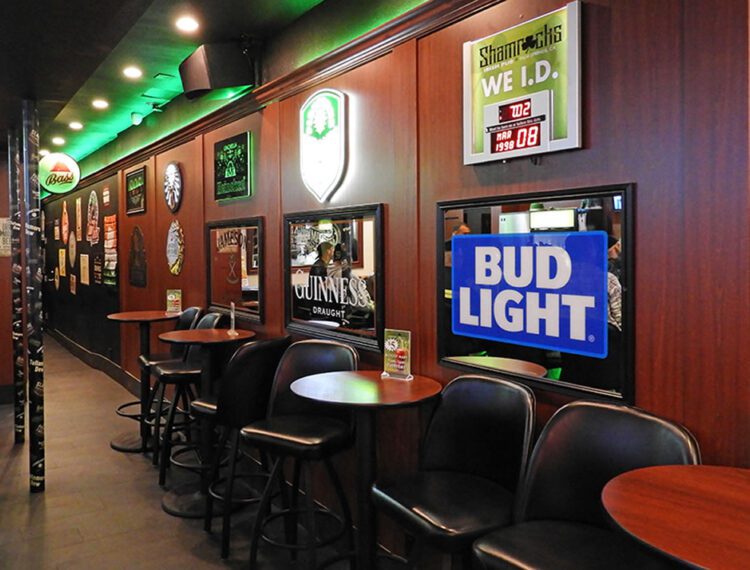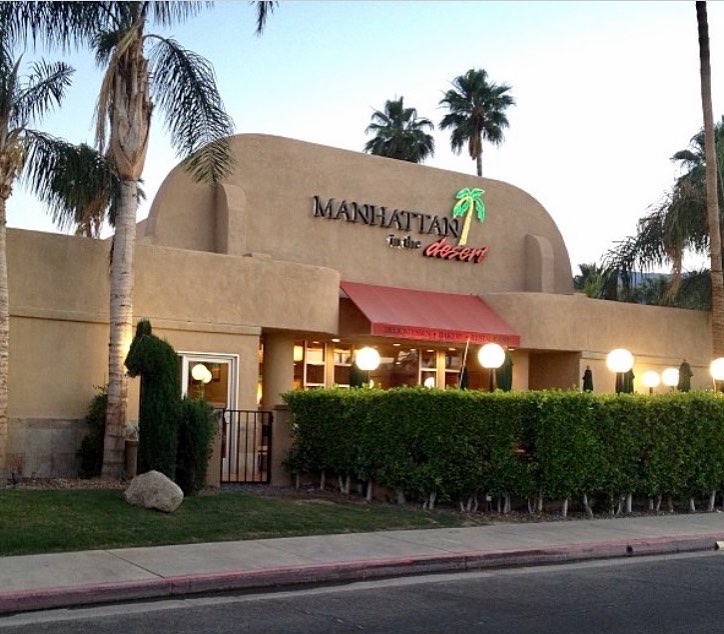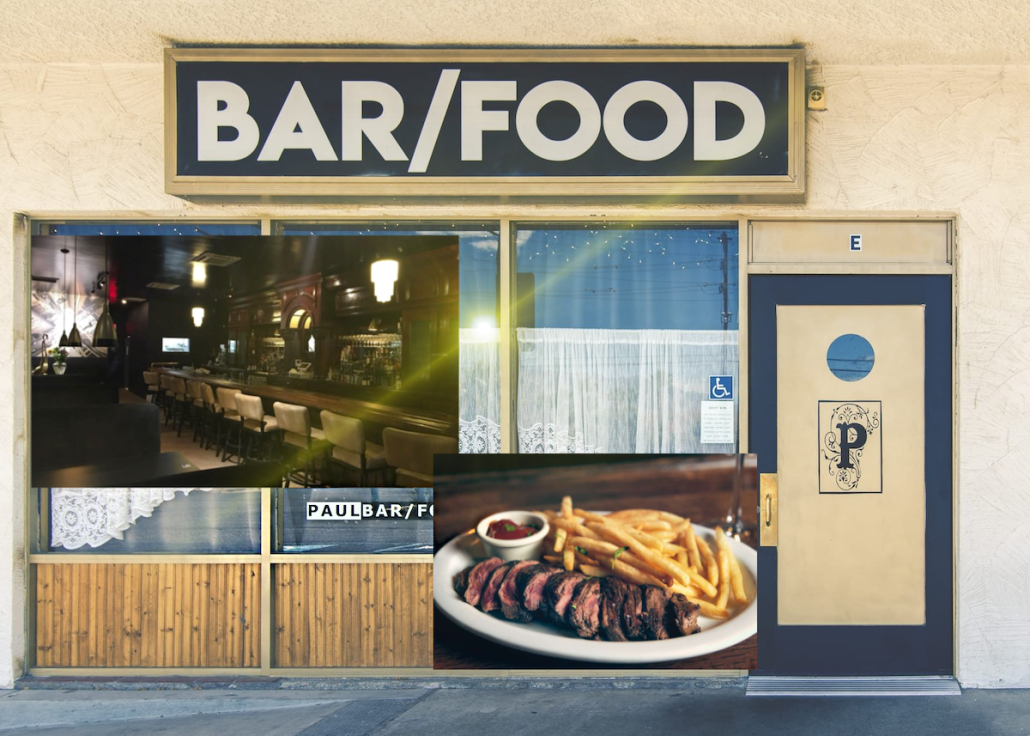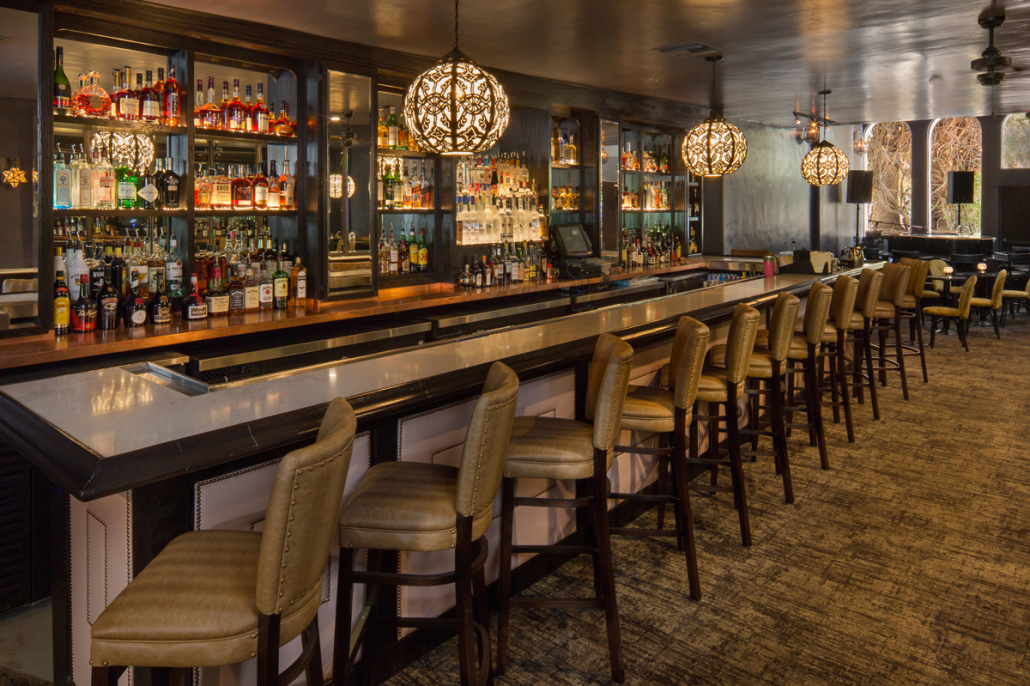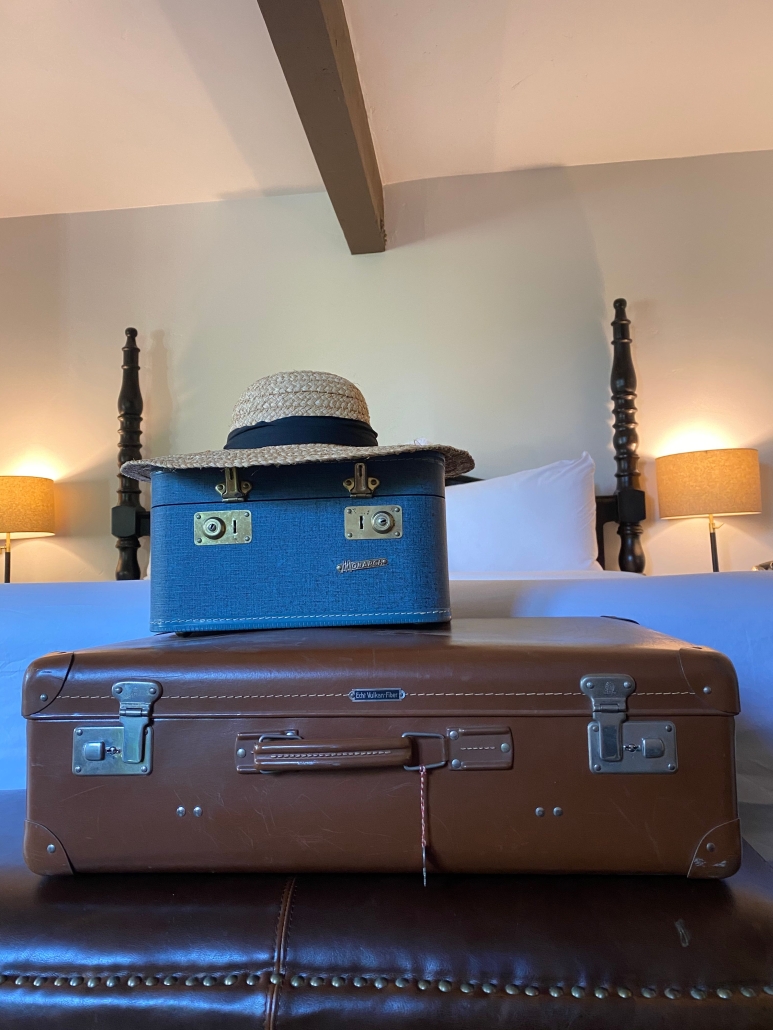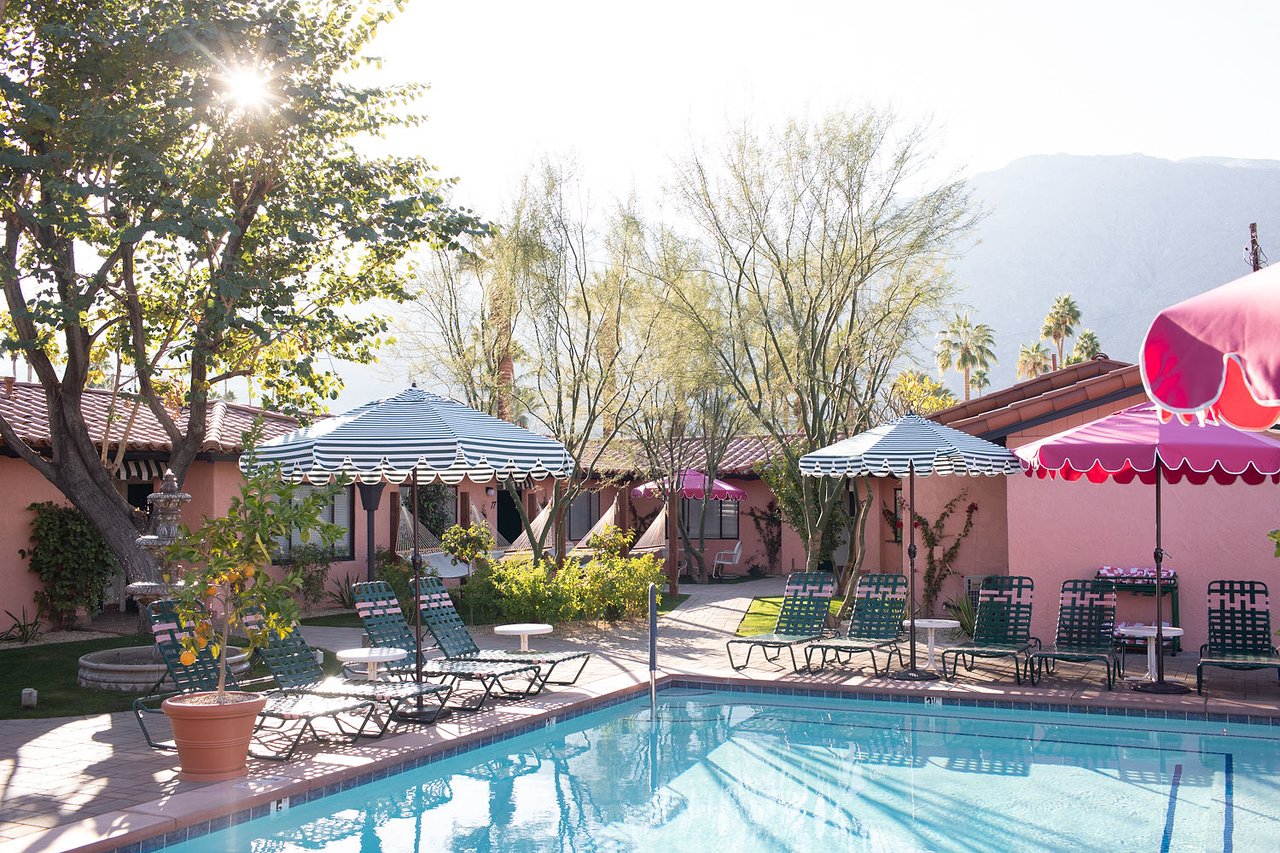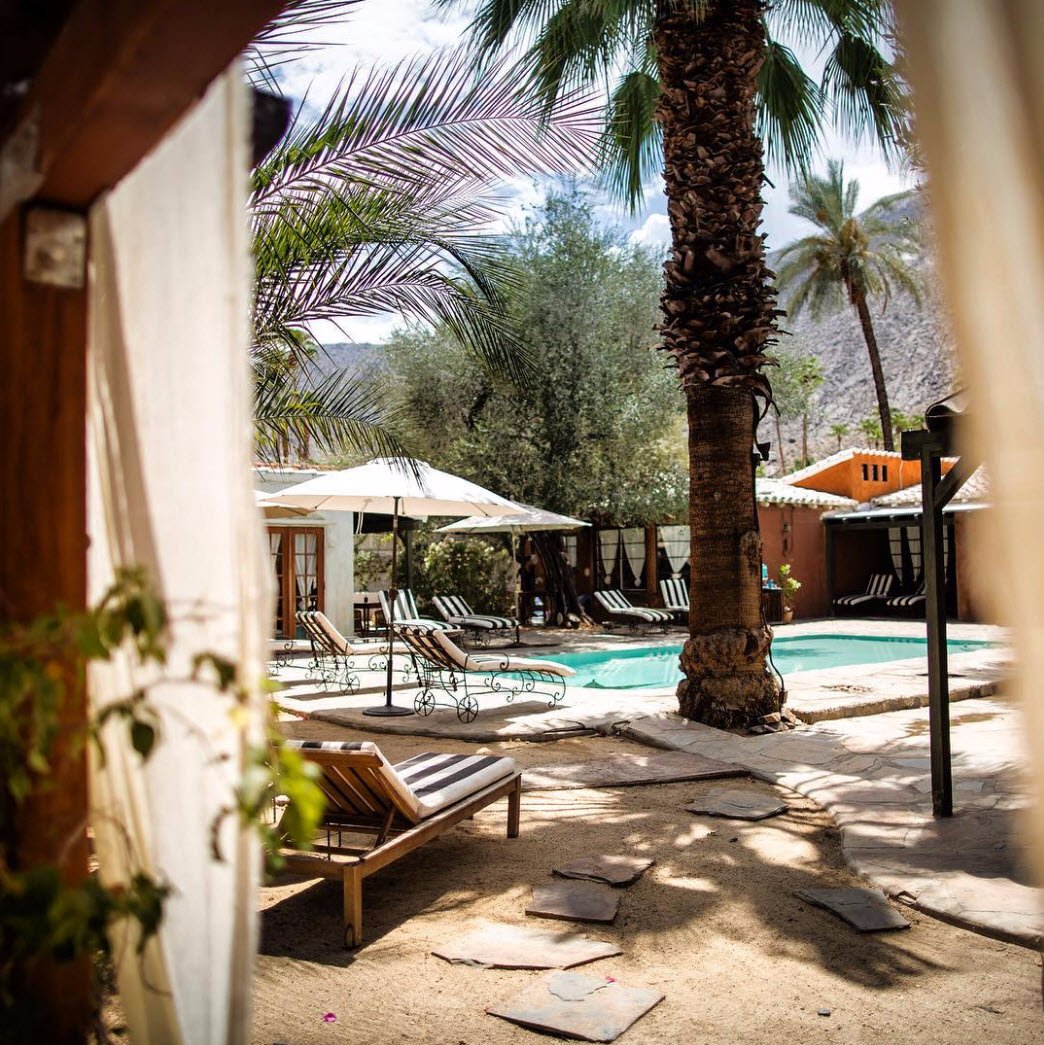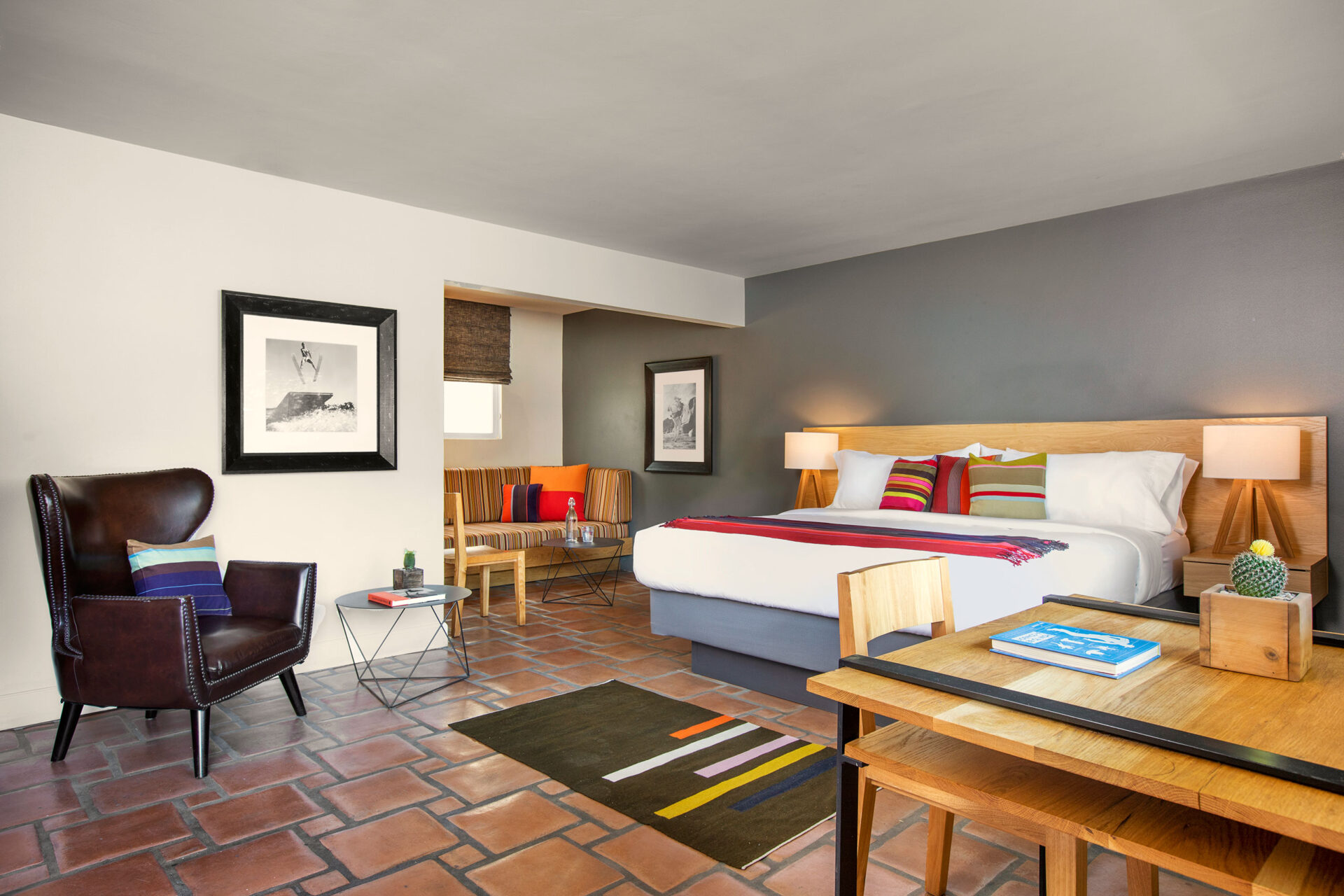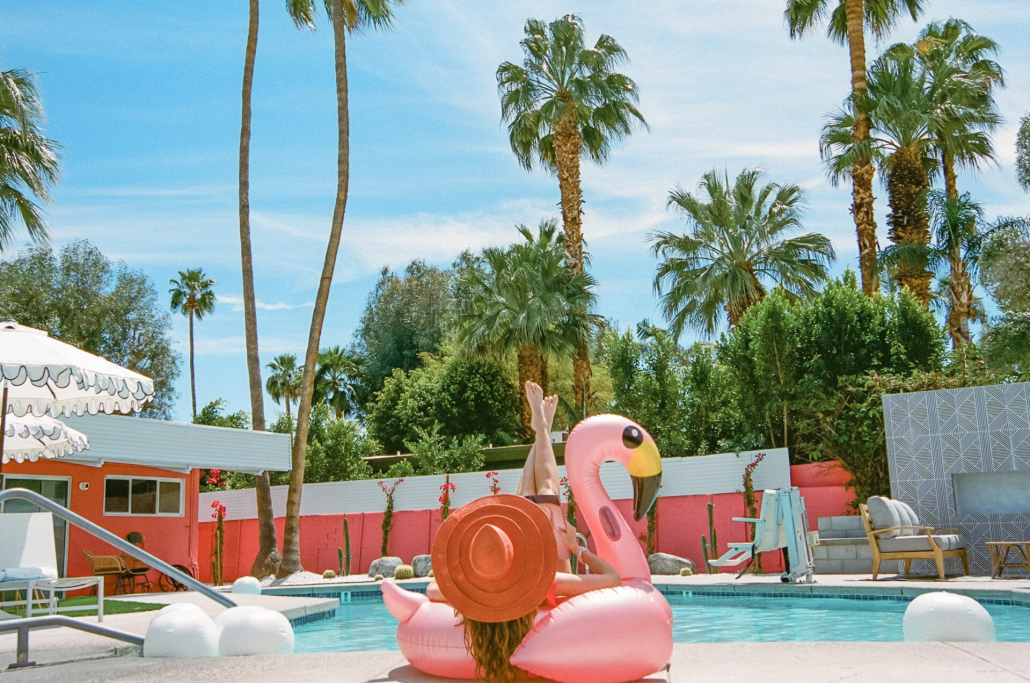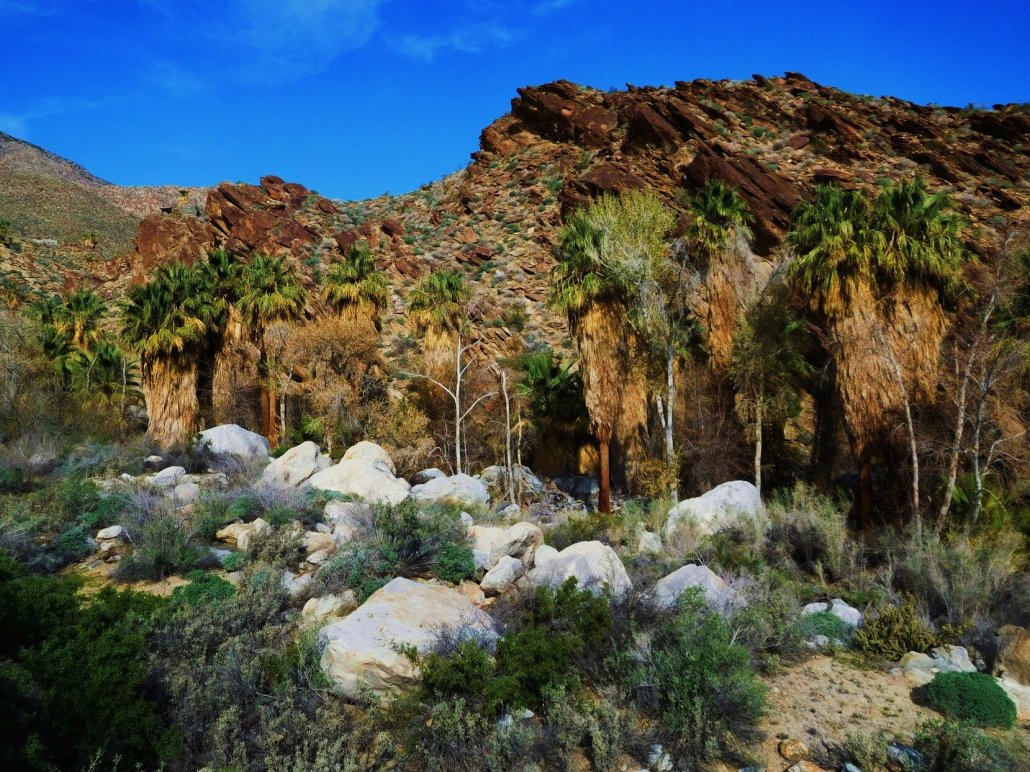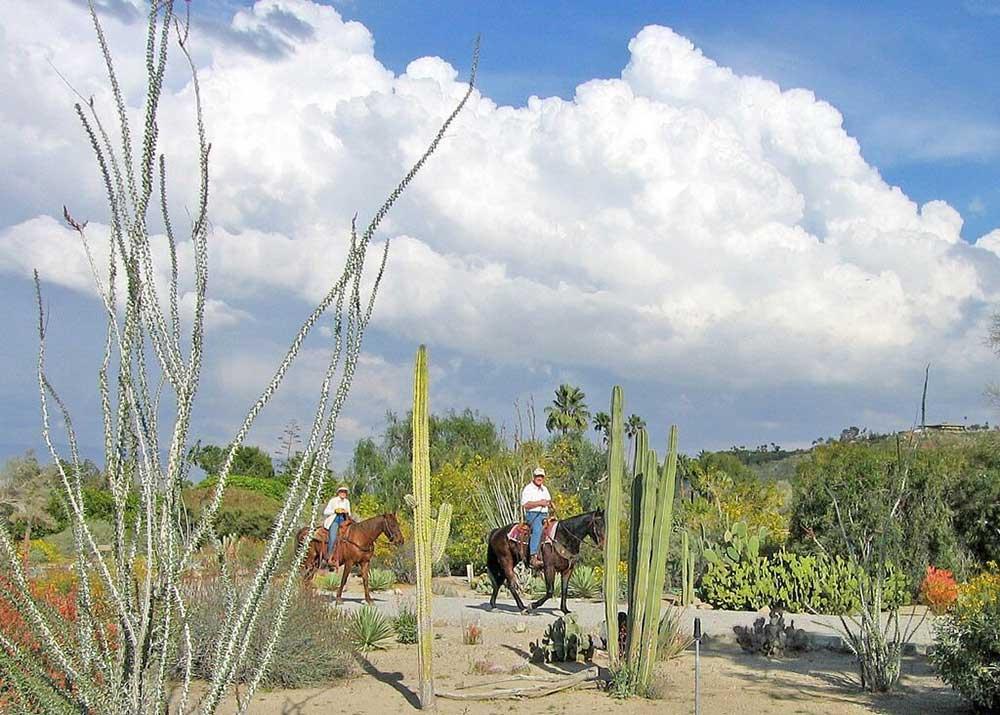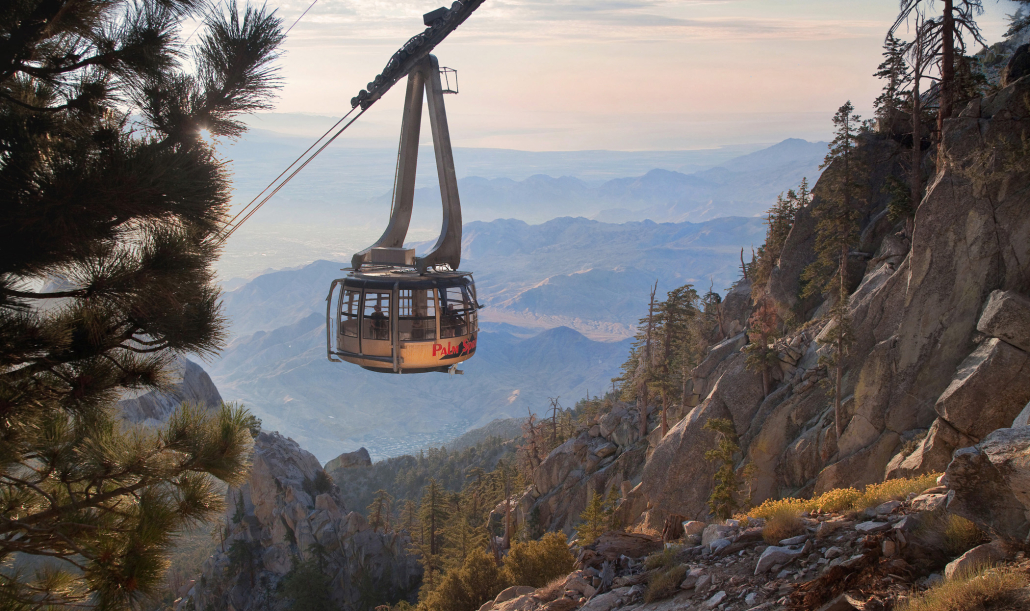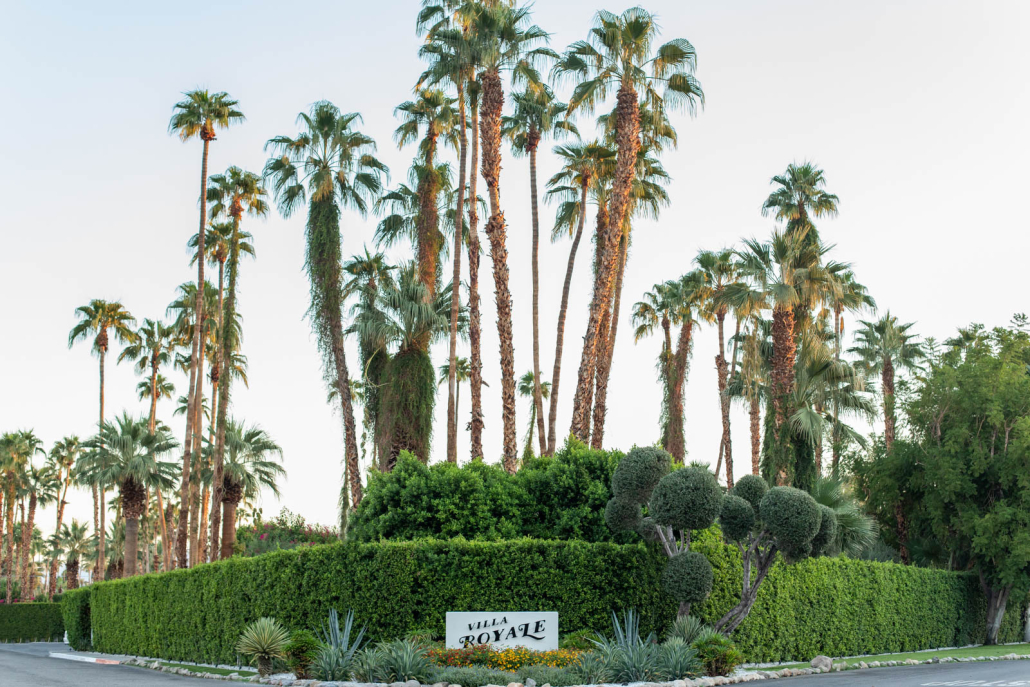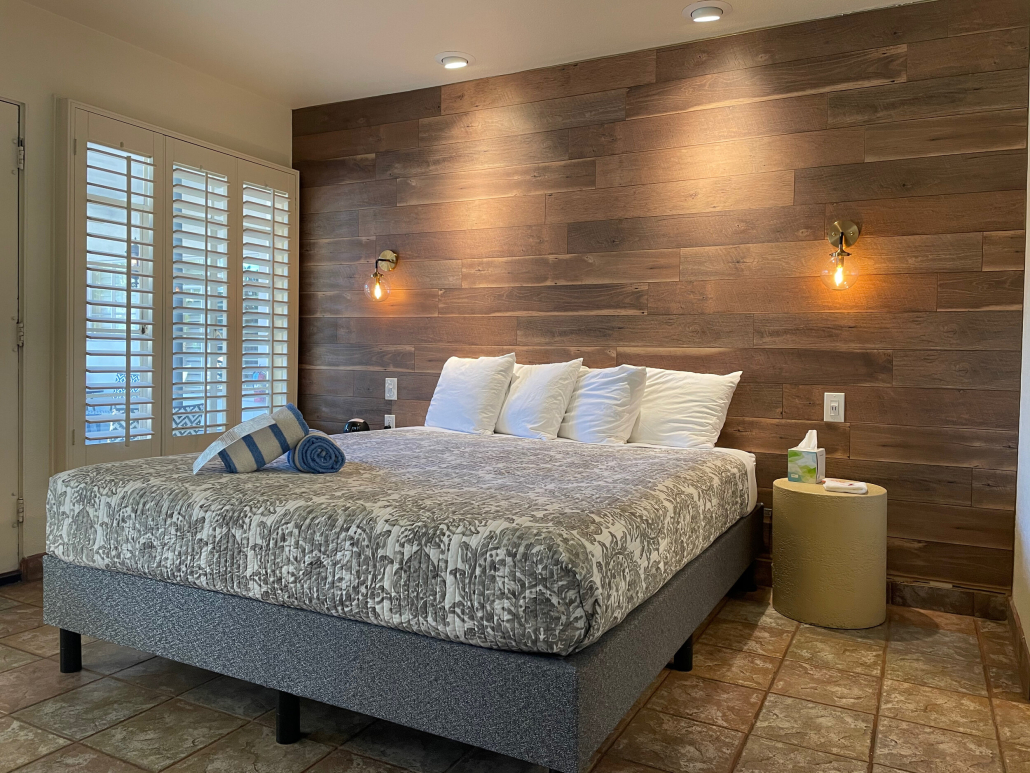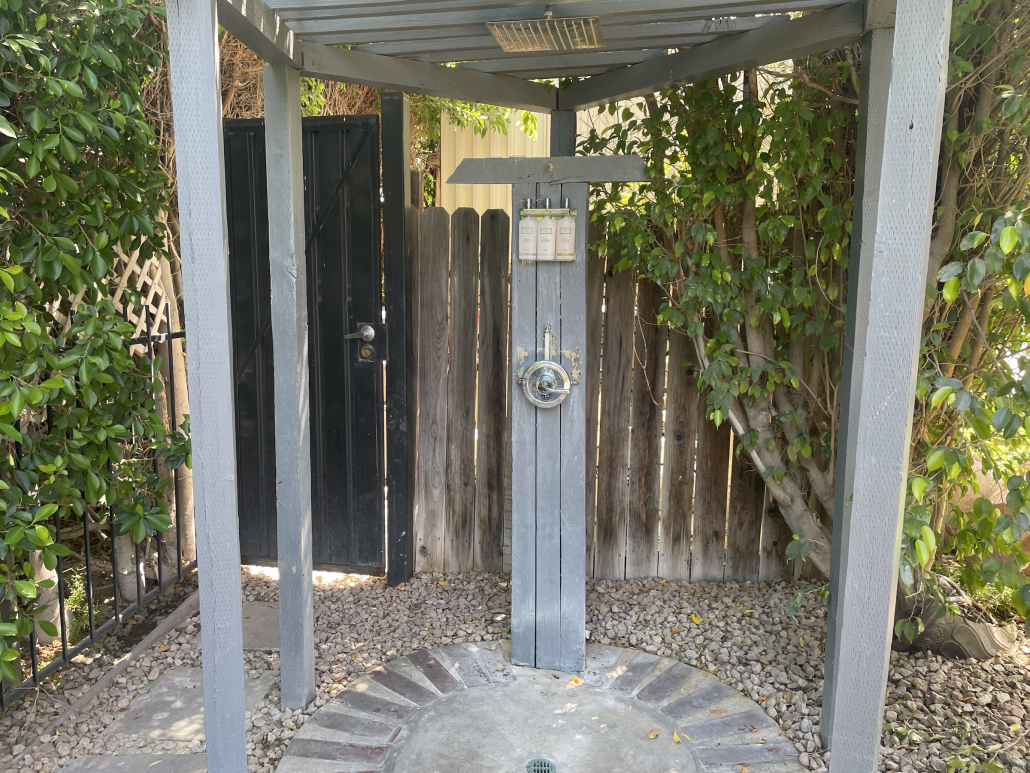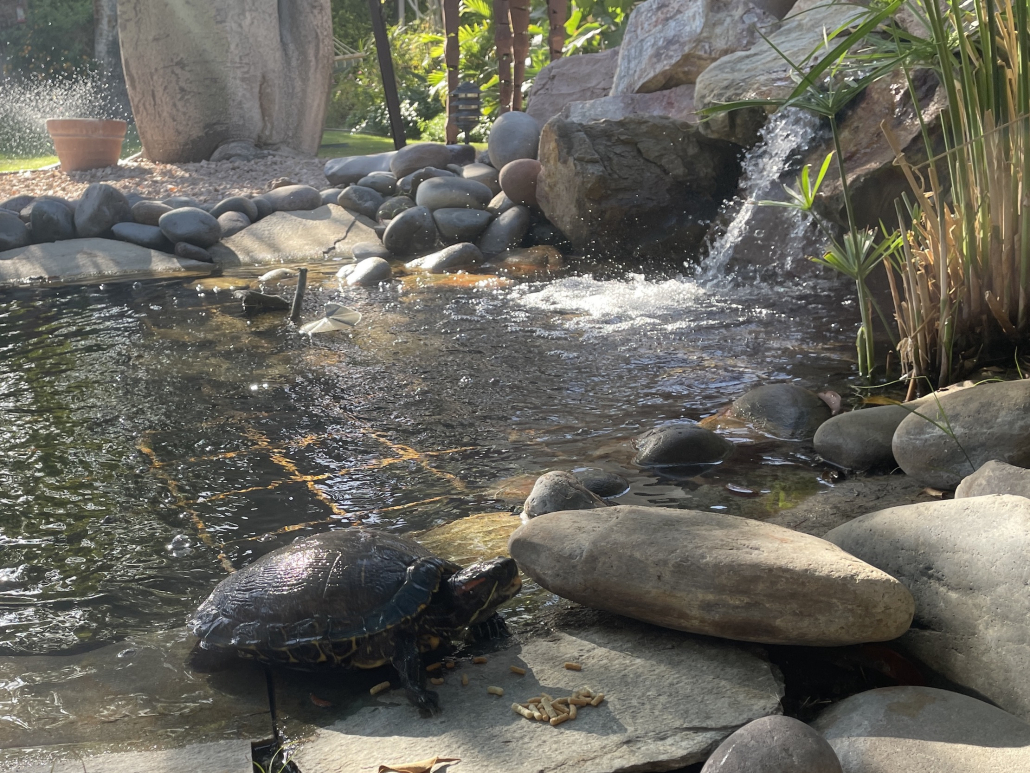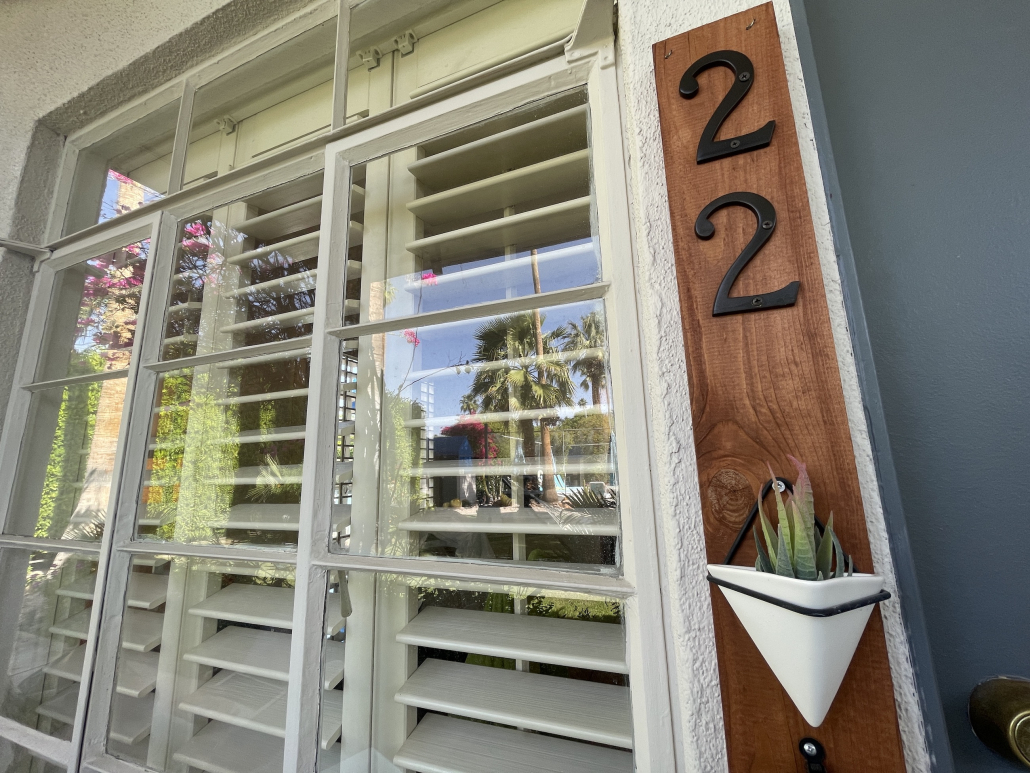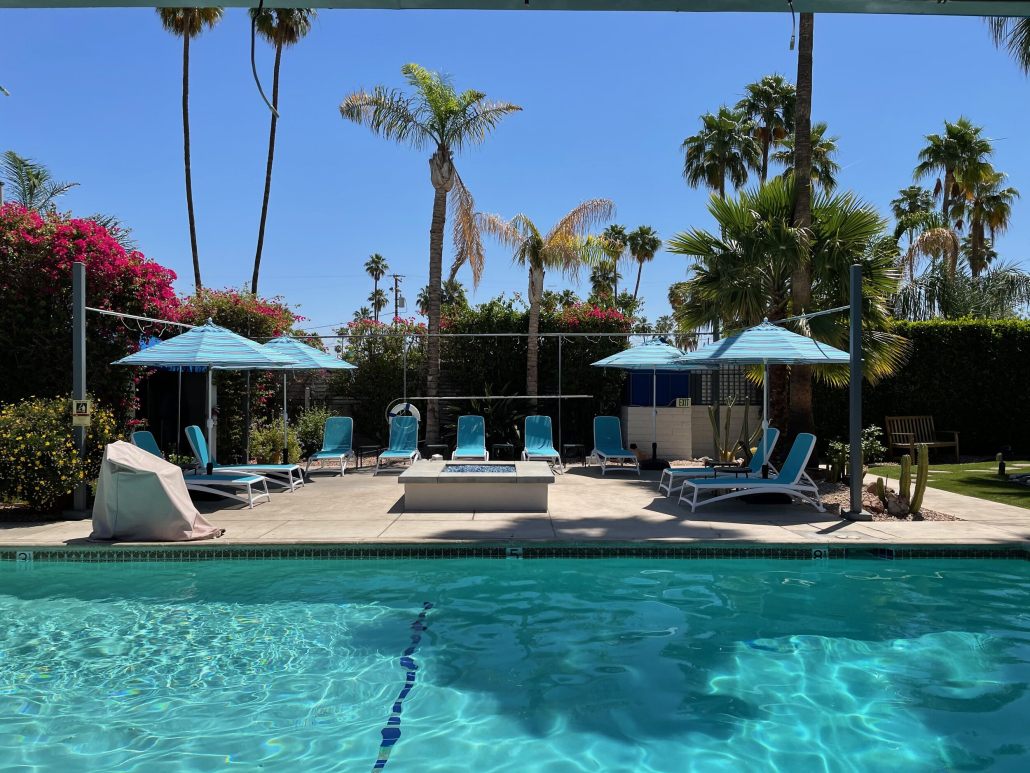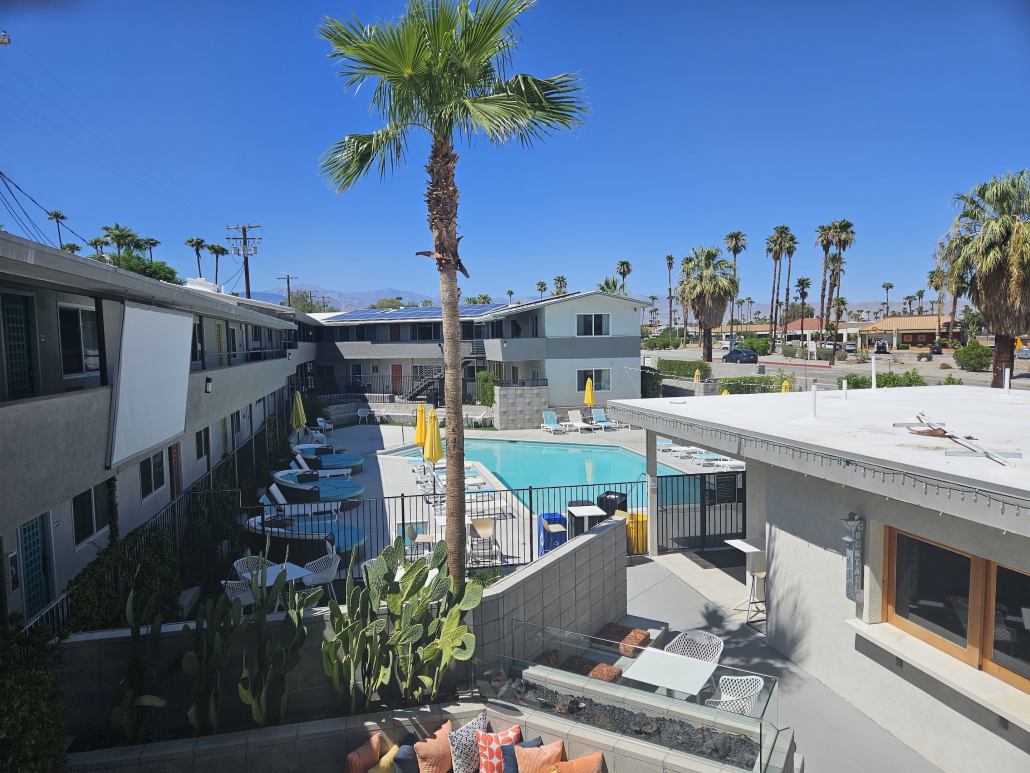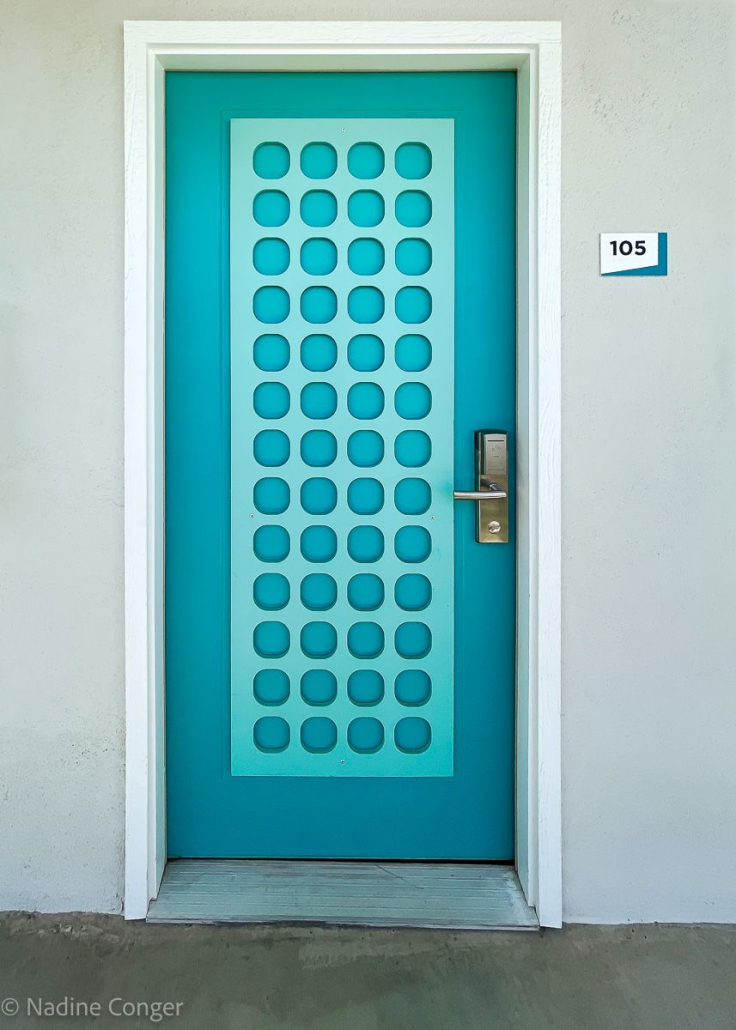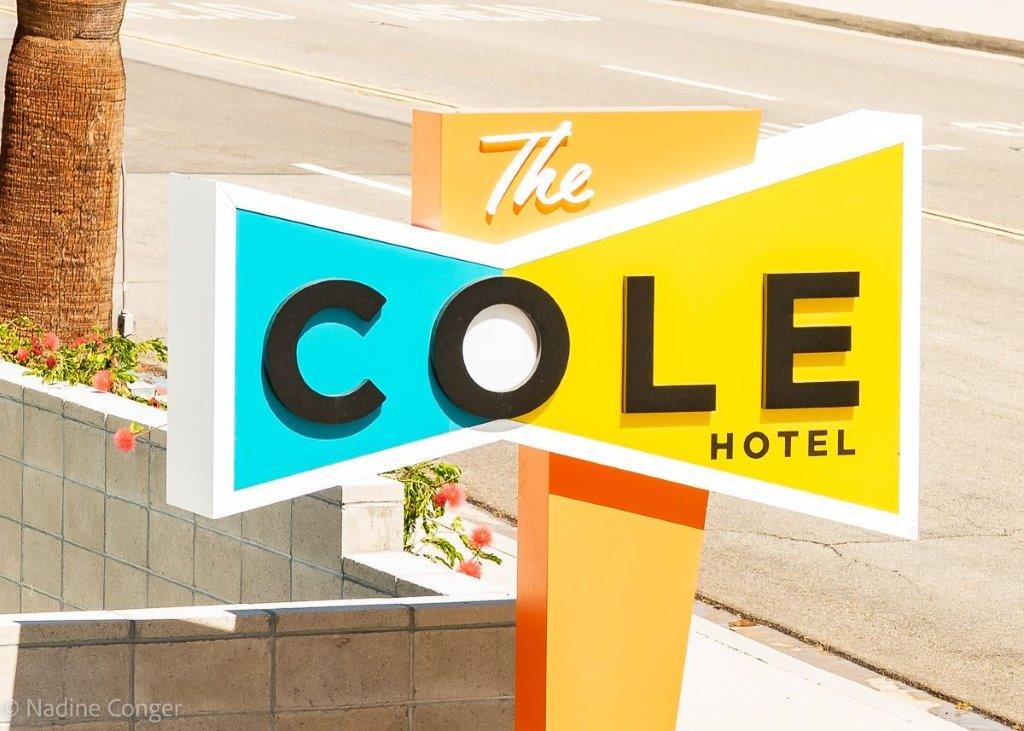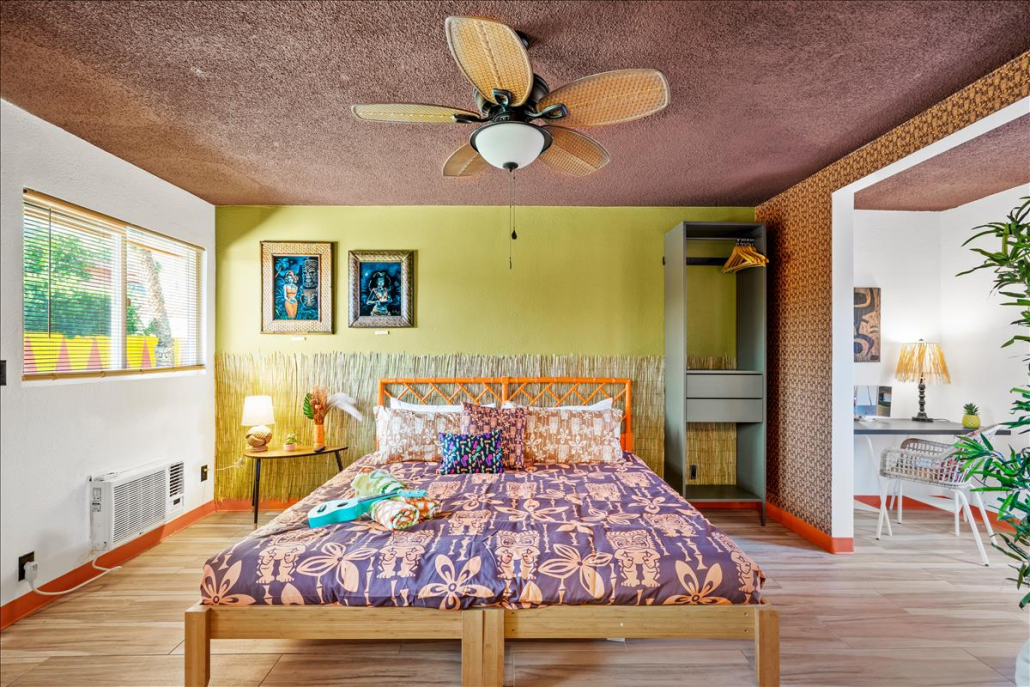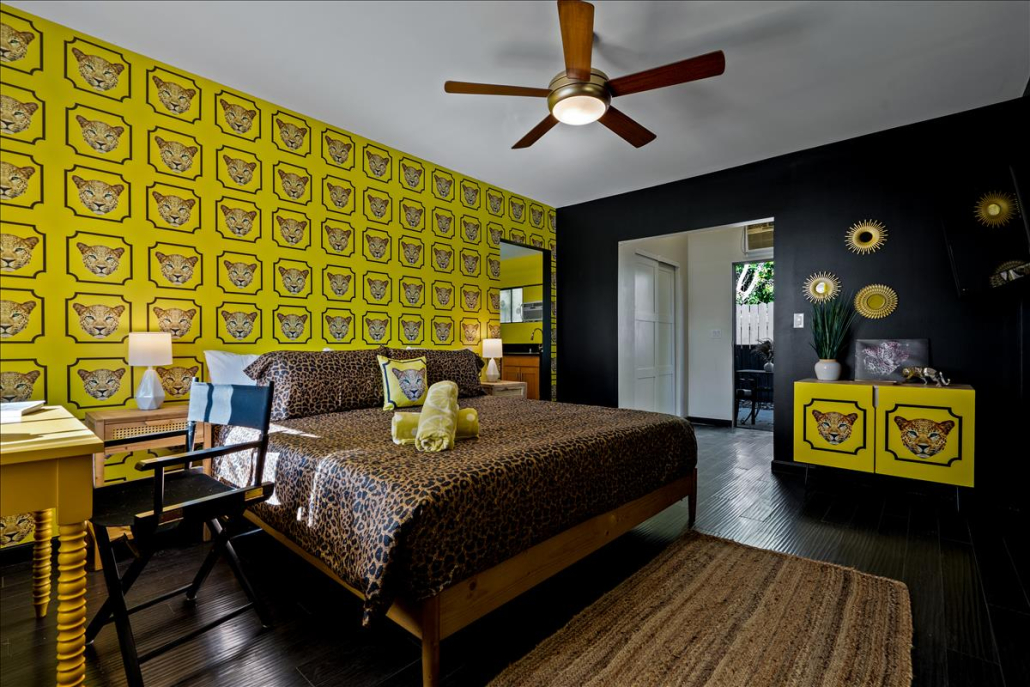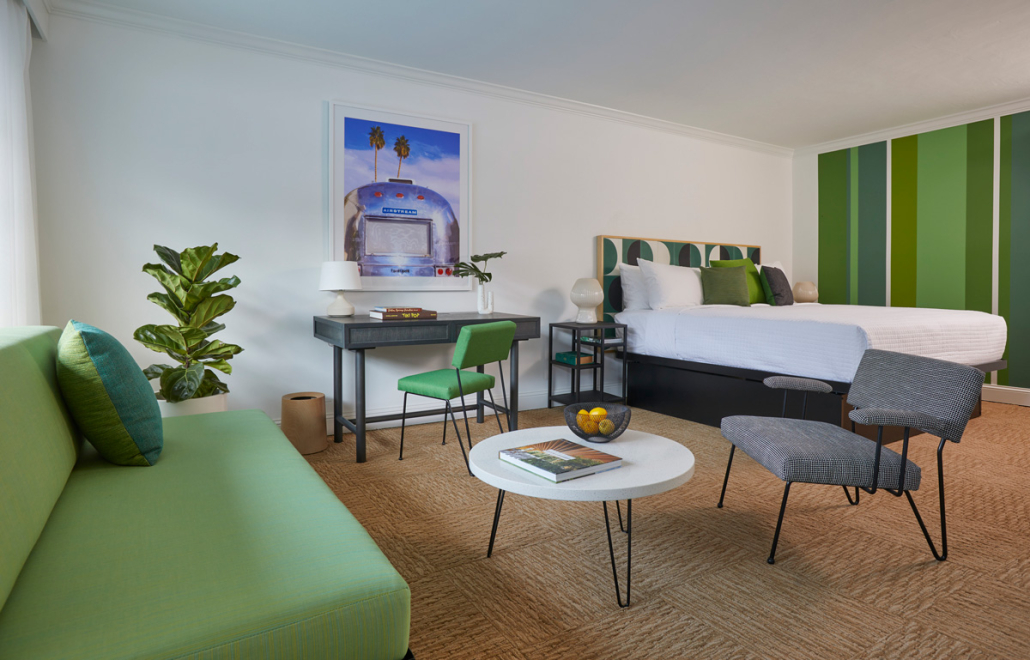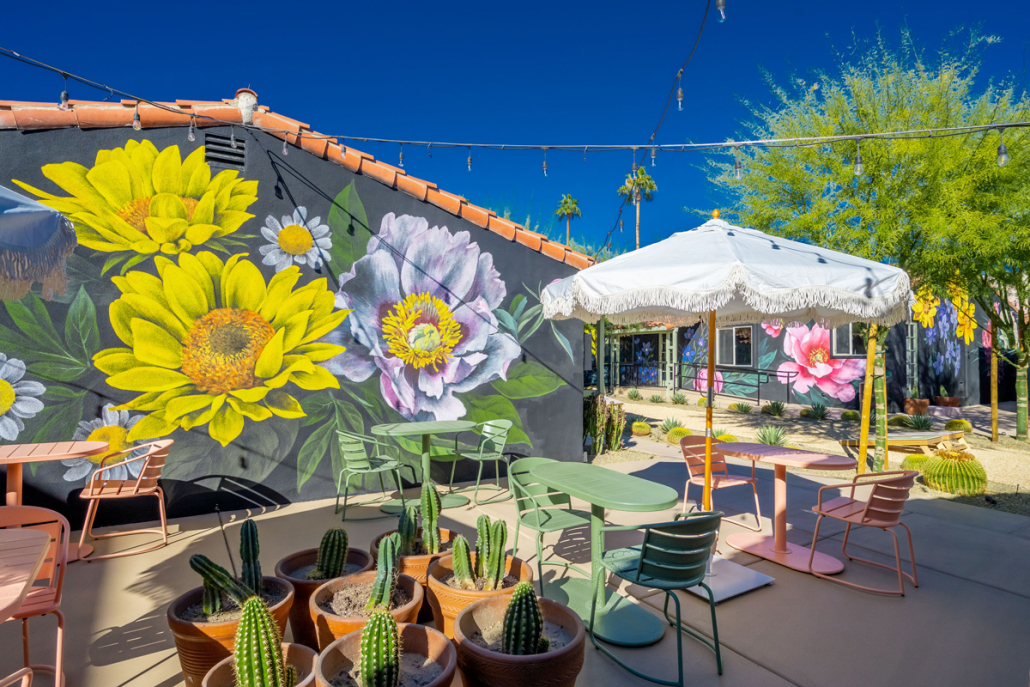The late 1940s and ’50s was the start of modernism in Palm Springs, but it wasn’t until 2006 that Modernism Week first cast its spell on the world. Since then, the number of people attending has risen each year, with 2023 bringing in over 100,000 visitors, creating a revenue stream of $55 million.
They have over 350 things to do, and this post will help you navigate the event, but I’m gonna tell you about some of our preferred small hotels that are on the Modernism Week bus tour. You can make the event an exceptionally authentic one by also booking one of these boutique hotels. And this year, one of them is actually featured as a Modernism Week event.
A Palm Springs classic: Casa Cody
Casa Cody, the city’s oldest operating hotel, isn’t from the modernism era — it was built in the late 1910s — but the property has been well maintained and has a fantastic history. Harold and Harriet Cody left Hollywood and came to Palm Springs (by wagon) in 1916, as Harold’s frequent tribulations with pneumonia were worsening and the dry desert air was considered a health benefit for anyone with lung ailments. Harold was a Los Angeles architect, and purportedly the cousin of the legendary Buffalo Bill Cody.
Initially, Casa Cody was just their home, but in 1920 Harriet hung up a hotelier’s shingle, and the rest is Palm Springs history. Some of their more famous guests included Charlie Chaplin, American opera singer Lawrence Tibbett, and AnaÏs Nin. Harriet is said to be a direct descendant of Sir Thomas Moore and from one of the wealthiest families in Philadelphia.
Today, Casa Cody has 31 guest rooms and private rooms, two swimming pools, a jacuzzi, a spa treatment room, and a marketplace, and you can see it all on Feb. 19, 2024, during the hotel’s special Modernism Week event. You’ll get to go on a behind-the-scenes tour and hang out poolside, with cocktails and brunch items available. All of this can be yours for the low, low price of $50.
Even when it’s not Modernism Week, Casa Cody has movies by the pool and art events available to guests. This party is a great opportunity to roam the grounds and check out all of that history!
That’s not all…
The other boutique hotels you’ll see on the Modernism Week bus tour are:
Korakia Pensione — Originally called Dar Marroc and styled after Tangier, Morocco, Korakia was built in 1924. It’s the former hideaway of Scottish painter Gordon Coutts, and the rumor is that Winston Churchill painted (not the walls, canvases) in the Artist’s Studio. Forbes Traveler named it one of their sexiest hotels in America.
Ingleside Inn — Home of the popular Melvyn’s Restaurant and Lounge, this estate began as a private home built in 1924 for Ethel Richards Birge and sold to Ruth Hardy in 1935 (you may have heard of her park, located on Caballeros). Even if you don’t stay here, go for a cocktail at Melvyn’s to check it out. Très cool.
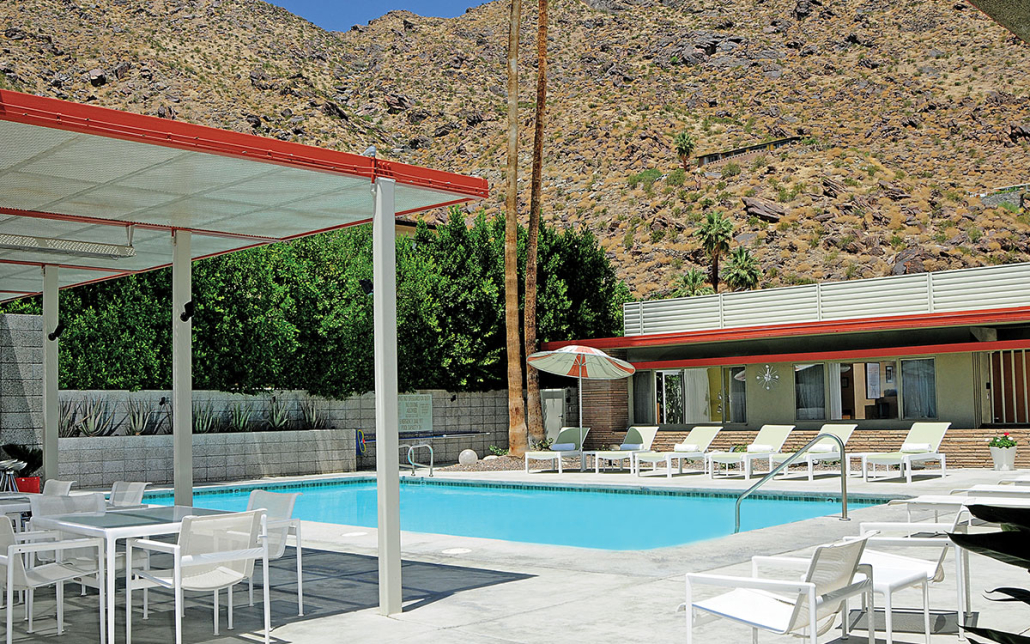
The Orbit In is a spectacular mid-century modern classic. Photo courtesy of Orbit In
Orbit In — Designed in 1948 by Herbert W. Burns, a builder and innkeeper behind a number of small inns and private homes in Palm Springs during the 1940s and ’50s. His Town and Desert Apartments live on as The Hideaway, one of the Orbit In’s two boutique hotels. From Orbit you can see Swiss architect Albert Frey’s masterpiece builds (Frey I & II) in the mountains above you. Burns designed many of the buildings on Baristo, just west of Belardo.
Movie Colony Hotel — This property was designed by Frey, who left his mark all over Palm Springs. Built in 1935, its original name was the San Jacinto Hotel, a three-unit townhouse. Currently, the Bauhaus-inspired property is a 17-room boutique hotel (they expanded, they did not cut up three townhouses to make 17 rooms). If you can, book Unit 29 — it is considered the least changed from Frey’s original design.
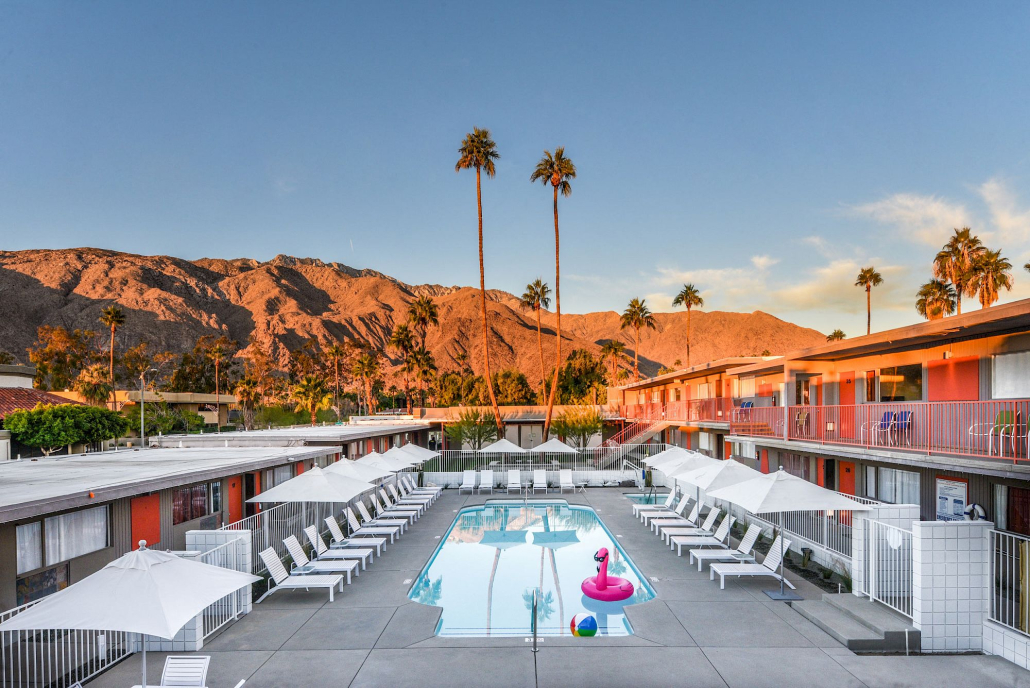
The views are fantastic from the Skylark Hotel pool. Photo courtesy of Skylark Hotel
Skylark Hotel — Recently updated, the mid-century modern property was built in 1955 and was the backdrop for the movie Palm Swings.
Willows — Located a stone’s throw south of the Art Museum, Albert Einstein used to stay here when he’d visit Palm Springs (and would “take the sun” in the buff). This is one of the 10 oldest structures in Palm Springs, and its eight guest rooms each have modern amenities while retaining their historic charm. You are right on the mountain, so you know you’re going to have a spectacular view.
Amin Casa — Formerly the home of Gloria Swanson, this beautiful estate dates back to the 1920s and accommodates 14 guests, adults only. For a unique experience, you can book Swanson’s original residence, a swanky two bedroom, two bath cottage with a grand living space.
That’s all we’ve got time for today, Modernettes. Hope to see you on the streets during Modernism Week!

